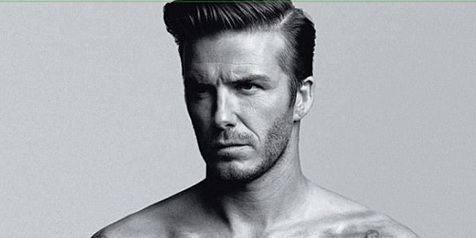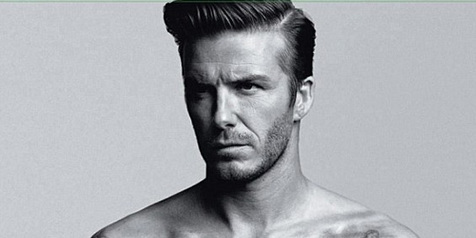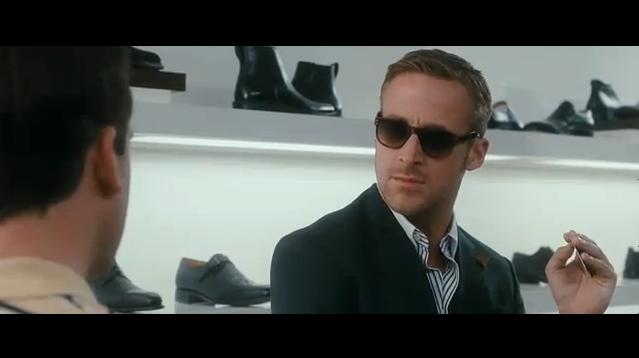The Atrocities of an Ill-Fitting Suit: The Rise of Metrosexualism
“Everyone likes a man who looks like he made an effort” is a mantra of the metrosexuals. Metrosexualism has become increasingly popular in the United States, especially in urban areas. The term was coined back in 1994 and it mostly applied to the single, rich and city-dwelling man. Today, metrosexual refers to any man who seems homosexual but is not. This man is in touch with his feminine side.
David Beckham was the original poster boy for the metrosexuals. He played soccer while posing for gay magazines and wearing nail polish. Along with Beckham, other male celebrities like Ryan Seacrest, Jude Law, Pete Wentz, Jonathan Rhys-Meyers, Cristiano Ronaldo and Ashton Kutcher are noted for their metrosexual influence.
Over the past century, women have become more and more masculine in identity, dress, career and ideals. They have invaded the male experience, preening around like they belong there, in that office chair, in that power suit, with that hair cut, drinking that beer. Perhaps the rise of the metrosexual is simply the result of that defiance. Men are now invading on the female experience: grooming in the mirror, buying that face cream, shopping with friends, wearing that haircut and sipping that martini. The more masculine female is here to stay, so it only follows that the more feminine male also might be a permanent fixture.
Blogger Tia Williams (see “Married to a Metrosexual”) takes some of the blame for turning her husband into a metrosexual by forcing him to try products and dragging him to makeup parties.
High-maintenance defines this man: he is someone who puts time and effort into appearance, and so he is in touch with his emotions on a deeper level. He thinks about his decisions, and he knows what looks good. He is the product of a consumerist society. In a way, the stereotypical macho man has no place in urban culture. He is not as worried about trends and grooming, products and presentation. His nonchalant opinion has no voice, and his style has no ramifications. A man with these tendencies is a simple man, without much influence. But with enough money and taste, any man can become influential. In others words, consumerism has made metrosexuality an aspiration.
Marketers have noticed this trend and are using it to their advantage. Advertising for everything from cars to beer has turned in a different direction. Instead of appealing to “the man within,” they now distinctly reach to touch the emotions and feelings one will have when driving that car or drinking that beer. Alan Treadgold, head of retail strategy at Leo Burnett said:
Traditionally, when purchasing home entertainment systems, we would expect guys to be motivated by gadgetry and technical features. But, increasingly, there’s a certain type of male choosing it from what might be seen as female attributes, such as the environment of the store, level of service and other intangible things.
With advancing technology, having a present male is not needed for reproducing. Nor do women need to rely on a man for financial security. Freeing up these qualifiers has allowed women to become more selective when choosing a partner and allows men to expand their interests and goals.
In turn, it makes it more difficult for the genders to find their particular roles and identities in culture.
When Glamour writer Danzy Senna realized leaving her future children at home everyday with her husband while she worked full time was not really what she wanted, she began to question the metrosexual man she was dating. Would non-traditional parenting be as liberating as she thought it would be?
The metrosexual makes a woman feel less like a woman. He does not make her feel beautiful and delicate because, most likely, he is also beautiful and delicate. He does not make her feel pursued or mysterious. He does not complement her; he is a competitor. But women then have to realize it goes both ways: how long has the male felt like woman was no longer his complement, but his competitor?
Society has noticed that there is something missing in our culture as a result of this trend. New York Time’s “Room For Debate” section launched the question, “Are Modern Men Manly Enough?” The debaters questioned whether metrosexualism is the cause or result of the loss of masculinity. Female debaters seemed to cry out for a return to the “man’s man,” and the men admit the lack of masculinity, though they are not anxious to return to it. “Men aren’t the new woman,” says author Mark Simpson. “Men are the new everything. Just as women have been for some time.”
Perhaps metrosexualism is just that: men being allowed, for the first time, to be everything. Maybe it is an idea that a man’s role should not be confined by an archetype. Just the same way we have raised our daughters to think about themselves: they can be everything and anything. The Feminist movement forced a certain view of woman upon society. Perhaps men, in return, are doing the same. The metrosexual movement gives men freedom. Who exactly has the right to get emotional?



